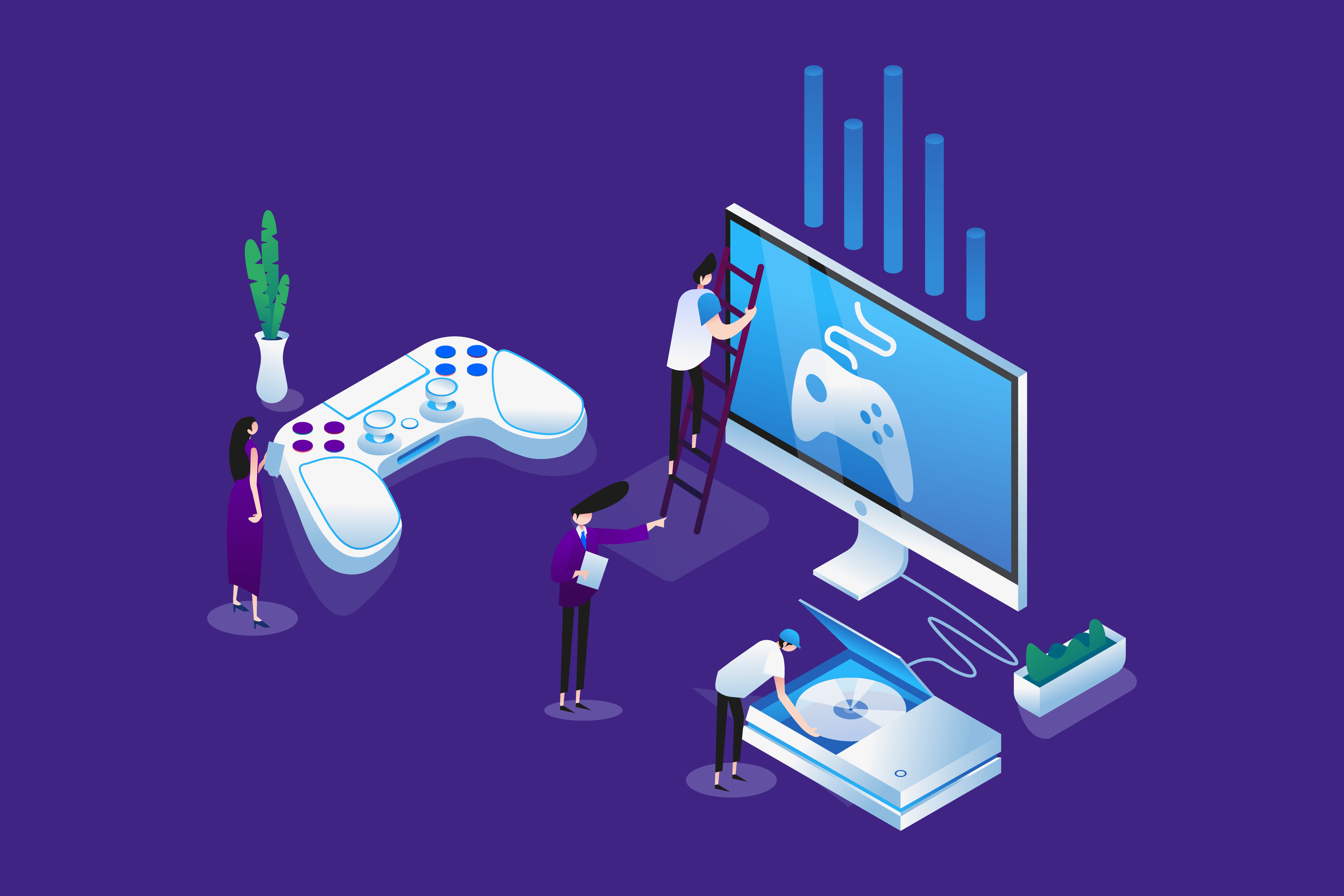Game development is an exciting and rapidly evolving industry that attracts creative minds from all over the world. Whether you dream of creating an indie hit or working for a major gaming studio, getting started in game development requires a mix of technical skills, creativity, and persistence. In this guide, we’ll explore the key steps to entering the world of game development and how to set yourself up for long-term success.
1. Understanding the Game Development Process
Before jumping into coding or design, it’s essential to understand the key stages of game development:
🎮 Concept & Planning – Defining the idea, genre, and target audience
🎨 Design – Creating game mechanics, level design, and story elements
🖥 Development – Coding the game and implementing gameplay features
🔊 Art & Sound – Designing assets, animations, and sound effects
🛠 Testing & Debugging – Ensuring smooth gameplay and fixing bugs
🚀 Launch & Marketing – Releasing the game and promoting it to players
Each stage requires different skills and tools, so beginners should start by learning the basics of game design and development.
2. Choosing the Right Game Engine
Game engines provide the foundation for developing games, offering tools for coding, graphics, physics, and audio. Here are some of the most popular options:
🕹 Unity – Best for beginners, supports 2D & 3D games, C# scripting
🔥 Unreal Engine – High-end graphics, ideal for AAA and indie games, uses Blueprint & C++
📱 Godot – Open-source and lightweight, great for 2D and 3D games, uses GDScript
🧩 GameMaker Studio – Best for 2D games, simple drag-and-drop interface
🎭 RPG Maker – Ideal for RPG-style games without deep coding knowledge
Beginners should start with Unity or Godot due to their ease of use, strong communities, and vast learning resources.
3. Learning the Necessary Skills
Successful game developers need a variety of skills, depending on their role in the development process:
💻 Programming – Learn C# (Unity), C++ (Unreal), or Python/GDScript (Godot)
🎨 Game Art & Animation – Master tools like Photoshop, Blender, or Spine for 2D/3D assets
🎵 Sound Design – Use software like FL Studio or Audacity for music and effects
📝 Storytelling & Game Design – Understand player engagement, level design, and pacing
For beginners, online courses, YouTube tutorials, and interactive platforms like Codecademy and Udemy are excellent places to start.
4. Start Small: Build Simple Games First
Many beginners make the mistake of starting with complex projects. Instead, focus on small, manageable games such as:
🎯 Pong or Breakout – Learn basic physics and collision detection
🐍 Snake or Flappy Bird Clone – Understand game loops and input handling
👾 Top-down Shooter or Platformer – Experiment with AI, level design, and animations
Starting small helps you gain confidence and experience without getting overwhelmed.
5. Joining a Game Development Community
Being part of a community is essential for learning and growth. Consider joining:
🛠 Reddit (r/gamedev) – Discussions, feedback, and resources
👾 Discord & Forums – Indie game dev communities for networking
🎮 Game Jams (Ludum Dare, Global Game Jam) – Practice making games under time constraints
💼 GitHub & Open Source Projects – Collaborate with other developers
Engaging with other developers will expose you to new ideas, techniques, and job opportunities.
6. Mastering Game Design Principles
Game development is not just about coding—it’s about creating a fun and engaging experience. Here are key game design principles to follow:
✔ Clear Goals & Rewards – Players should always have a purpose in the game
✔ Balancing Challenge & Skill – Ensure a fair difficulty curve
✔ Juiciness & Feedback – Add animations, sound effects, and UI polish
✔ Storytelling & Immersion – Create emotional engagement through characters and world-building
Studying popular games and analyzing what makes them fun is a great way to improve your own designs.
7. Monetization & Publishing Your Game
Once your game is finished, it’s time to release and monetize it. Here are popular strategies:
💰 Premium Model – Sell the game for a one-time fee (Steam, Epic Games Store)
📲 Freemium Model – Offer a free game with in-app purchases (mobile games)
🎟 Ads & Sponsorships – Earn revenue through in-game ads (Google AdMob, Unity Ads)
👥 Crowdfunding & Patreon – Get financial support from fans before or after release
Platforms like Steam, Itch.io, and Google Play Store are great places to publish indie games.
8. Building a Portfolio & Finding Game Dev Jobs
If you’re looking to work for a studio or as a freelancer, building a strong portfolio is key. Here’s how:
📌 Create small, polished games – Showcase your best work
📌 Host your projects on GitHub or Itch.io – Make them accessible to employers
📌 Write Devlogs & Tutorials – Share insights on Medium, YouTube, or a personal blog
📌 Network with industry professionals – Attend game dev conferences and online meetups
A solid portfolio demonstrates your skills and increases your chances of landing jobs or freelance gigs.
Final Thoughts: Succeeding in Game Development
Game development is a challenging but rewarding journey that requires patience, creativity, and technical skills. By starting small, learning continuously, and engaging with the community, you’ll set yourself up for long-term success.
Whether you want to create indie games, join a studio, or start your own game development company, the most important thing is to keep experimenting, learning, and never give up. The gaming industry is constantly evolving, and those who stay ahead of trends will have the best opportunities.
🚀 Are you ready to start your game development journey? The best time to begin is now! 🎮




No responses yet